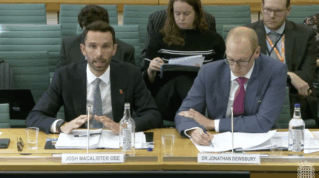Schools, trusts and councils could face billions of pounds in unplanned maintenance costs as their private finance initiative (PFI) contracts come to an end, analysis has revealed.
Government data shows there are 219 active PFI contracts in education in the UK, more than any other sector. The majority – 170 – relate to schools in England.
PFI deals have been used to fund new school projects since the late 1990s. They involve private companies building and maintaining sites in exchange for mortgage-style payments, normally over 25-year contracts – which rise beyond inflation – before handing them over to taxpayers.
During a panel discussion at the Education Estates conference in Manchester this week, Dave Hallam, senior director at buildings consultancy Arcadis, said the “scale is huge and the stakes are very high”.
According to the firm’s analysis, the capital value of the UK’s active education PFI contracts, which all expire in the next 17 years, stands at £12 billion.
But Arcadis said its own work had found “condition disputes alone can amount to as much as 34 per cent of the original capital value at construction”.
“If you put that into perspective from the schools portfolio, we talked about £12 billion capital value,” said Hallam.
“So, a third of that in terms of backlog and unplanned condition liability, you’re talking about £4 billion potentially landing into the books of schools and academies.”
Schools ‘leaving prep to the 11th hour’
He added that “the scale is huge, and the stakes are very high, and particularly for those with smaller authorities and trusts with lean teams and business as usual responsibilities. It can be a daunting challenge.”
Schools Week recently revealed how vital construction work on schools involved in England’s biggest PFI deal could be left incomplete, despite a council pumping in £3.5 million of its own money to fill a funding shortfall.
Local authority chiefs in Stoke stumped up the extra funding as they signed off on an extension for the work to be completed by a PFI company, just months before its contract was due to end.
Nigel Herbert, head of practice for asset optimisation at Arcadis, said organisations were being caught out by leaving preparation for the end of their deals “until the 11th hour”.
“People are leaving it until, in some instances, jobs that we’ve got involved in, a year before hand back. And that just is too late.”
Public sector ‘deskilled’
He also warned that the public sector has become “deskilled” in PFI over the past 25 or 30 years, and organisations suddenly face a “massive task to actually look at getting their hand-back dealt with”.
Nick Iliff, from the National Infrastructure and Service Transformation Authority, which sits within the Treasury, said “expiry planning can never start soon enough”.
But his organisation saw bodies such as schools with “two types of bad relationship” with PFI providers – “ones where the relationship is too good, perversely, and ones where the relationship is very bad”.
The first is where they have “fallen out” over things like performance failure. But the “other kind of bad relationship, I would say, is the one which is too cozy.
“I have been to a number of schools where I have said, ‘well, what performance deductions have you made over the last five to 10 years?’ They go, ‘well, minimal or none, but by the way, we have an absolutely fantastic relationship with the… provider’.
“You will probably find your relationship isn’t as good as you think it is.”















Your thoughts